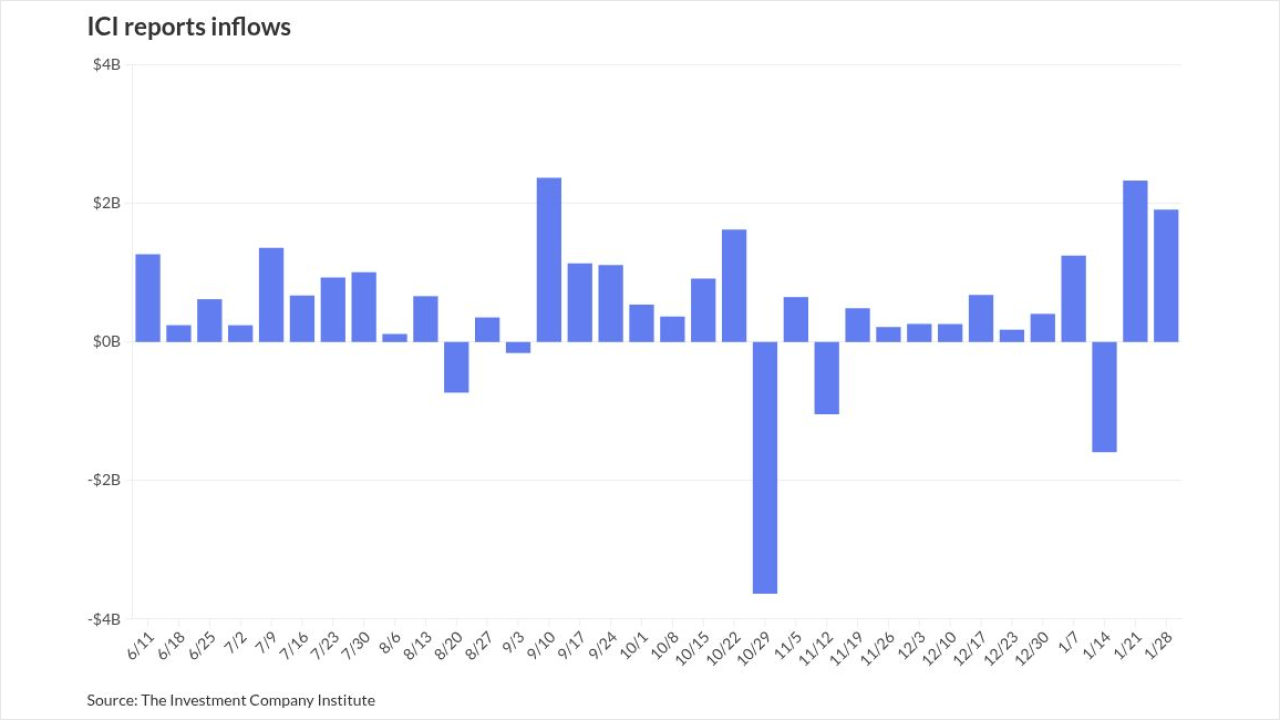West Virginia's general revenue collections came in at $283.4 million in February, $30.62 million below the official estimate.
"While February's revenue came in slightly below our expectations, it's important to remember this is due to the timing of certain personal income tax credits," Gov. Jim Justice said on Monday.

"West Virginia's economy continues to be strong and diversified, as evidenced by our year-to-date surplus exceeding estimates by $428 million so far," he said. "Looking ahead, I remain very confident in West Virginia's long-term financial health."
Personal income tax collections totaled $28.9 million last month. Year-to-date collections totaled nearly $1.437 billion, $135.3 million above estimates but 10.5% below prior year receipts after a 21.25% tax rate cut.
February corporation net income tax collections of nearly $6.5 million were $5.0 million above estimate. Year-to-date collections of $243.6 million were $124.5 million above estimate and 13.6% ahead of last year.
Consumer sales tax collections totaled more than $142.1 million last month. Year-to-date collections of more than $1.168 billion were $18.1 million above estimate and 3.5% ahead of last year.
Severance tax collections of almost $31.5 million in February were nearly $7.5 million above estimate. Cumulative collections totaled about $199.4 million.
Year-to-date interest income collections of more than $155.3 million were $124.7 million above the official estimate and more than 127% ahead of last year.
In January, Justice proposed a $5.3 billion
Justice, who unveiled the
West Virginia's general obligation bonds are rated Aa2 by Moody's Investors Service, AA-minus by S&P Global Ratings and AA by Fitch Ratings.
West Virginia ranked 39th in bond volume last year, up from 50th in 2022. The state saw its issuance more than quadruple to $1.55 billion in one issue in 2023 from $384.1 million in 24 issues in the previous year.
Separately, Justice announced last week the state had implemented upgrades to its
The website is an online tool that connects local communities with federal funding opportunities made possible under the Infrastructure Investment and Jobs Act (IIJA) and the Inflation Reduction Act (IRA).
The IIJA was signed into law in 2021 and offers states and local governments a way to build out various aspects of their infrastructure.
Under the law, improvements can be made in areas such as roads, bridges, public safety, public transportation, resilience measures, electric vehicle charging infrastructure, ports, rail systems, environmental remediation, clean water accessibility, internet connectivity and job creation.
The IRA was signed into law in 2022 and provides incentives, grants and loans, as well as tax credit programs that can support infrastructure investments in clean energy, transportation and the environment.
By 2027, West Virginia is slated to get $7 billion in federal funding through these bills.
Under the laws the federal government provides funding in two separate ways: formula funds made to state agencies and discretionary grants that go to state agencies, counties and cities.
Formula funding uses a set method to estimate how much federal funding can be made available for the coming year.
These funds are not sent directly to the state agency, rather the agency picks qualified projects, announces the projects, signs contracts and selects a contractor. The state agency pays the contractor directly and the federal government reimburses the agency for eligible costs, which are capped under the formula.
Discretionary grants are when cities, counties and state agencies compete for funds by submitting grant applications and the federal government picks the projects to be funded. Usually there is no set formula to estimate how much grant funding must be allocated to each state and a state is not guaranteed a certain amount.
The hub is designed to allocate IIJA funds throughout the Mountain State to ensure infrastructure investments are made where they are needed most.
An
"Our West Virginia infrastructure hub, now with the new investment dashboard, empowers West Virginia communities to strategically pursue federal funding, and see where dollars are being invested, ensuring no corner of West Virginia is left behind as we build a brighter future, together," Justice said.
Since 2017, the administration has invested over $13.4 billion in the state's infrastructure, creating thousands of jobs, the governor said.
"This $13.4 billion total investment in infrastructure reflects my unwavering belief in the future of West Virginia and its people," Justice added. "We're building a stronger foundation for generations to come, and the West Virginia Infrastructure Hub is a key tool in achieving this goal."
Also last week, the Department of Transportation launched its core maintenance program, which bolsters the state's commitment to infrastructure maintenance and investment. The state said more than 25,110 potholes have been patched on 3,811 miles of roadway and the program aims to continue prioritizing core maintenance.
The DOT project map was released last week as well. The online map tracks core maintenance projects in every community and every county, and lists every paving project, bridge project, slide repair project, and
The DOT said its data will be updated every two weeks, so residents can see what projects are planned for the roads in their communities and follow them.
"This marks a huge step forward in our commitment to enhancing West Virginia's infrastructure," Justice said. "Through the launch of the 2024 WVDOT core maintenance program and the unveiling of our comprehensive project map, we are setting the standard for transparency and efficiency."
In January, Justice unveiled the state's school for tourism.
"With tourism exploding in West Virginia, it's time to start working with our students to showcase all good-paying jobs available in this industry. The growth has been off the chart and our research shows this is quickly becoming a high-demand field," Justice said.
Hosted by West Virginia University and supported by the state Department of Education's Division of Instruction and Career Engagement, the
Additionally, the students will visit many of the state's travel regions and meet with industry professionals. They will learn about a variety of tourism sectors, such as outdoor recreation, arts and culture, hospitality and lodging and culinary arts.
This program is provided at no cost to students or families. State funds provide tuition, room, board, activities, and instructional materials for each student.
The school will accept one freshman or sophomore from each county as well as one student from each of the state's five charter schools and a student from the West Virginia School for the Deaf and the Blind.
Students will help the state Department of Tourism to develop promotional strategies to be used the following year and will serve as official tourism ambassadors. They will also work as local content creators and liaisons to the department's marketing team.
The curriculum will be led by West Virginia University's esteemed Hardy Family Hospitality and Tourism Management program within the John Chambers College of Business.
"Tourism is a significant and growing part of our state economy," said Josh Hall, a dean at WVU's John Chambers College of Business and Economics. "West Virginia University is proud to partner with the governor's office on this program."
Justice is a Democrat-turned-Republican who took office in 2017. He is term limited out at the end of the year. He is running for the U.S. Senate seat now held by retiring Democrat Joe Manchin.





